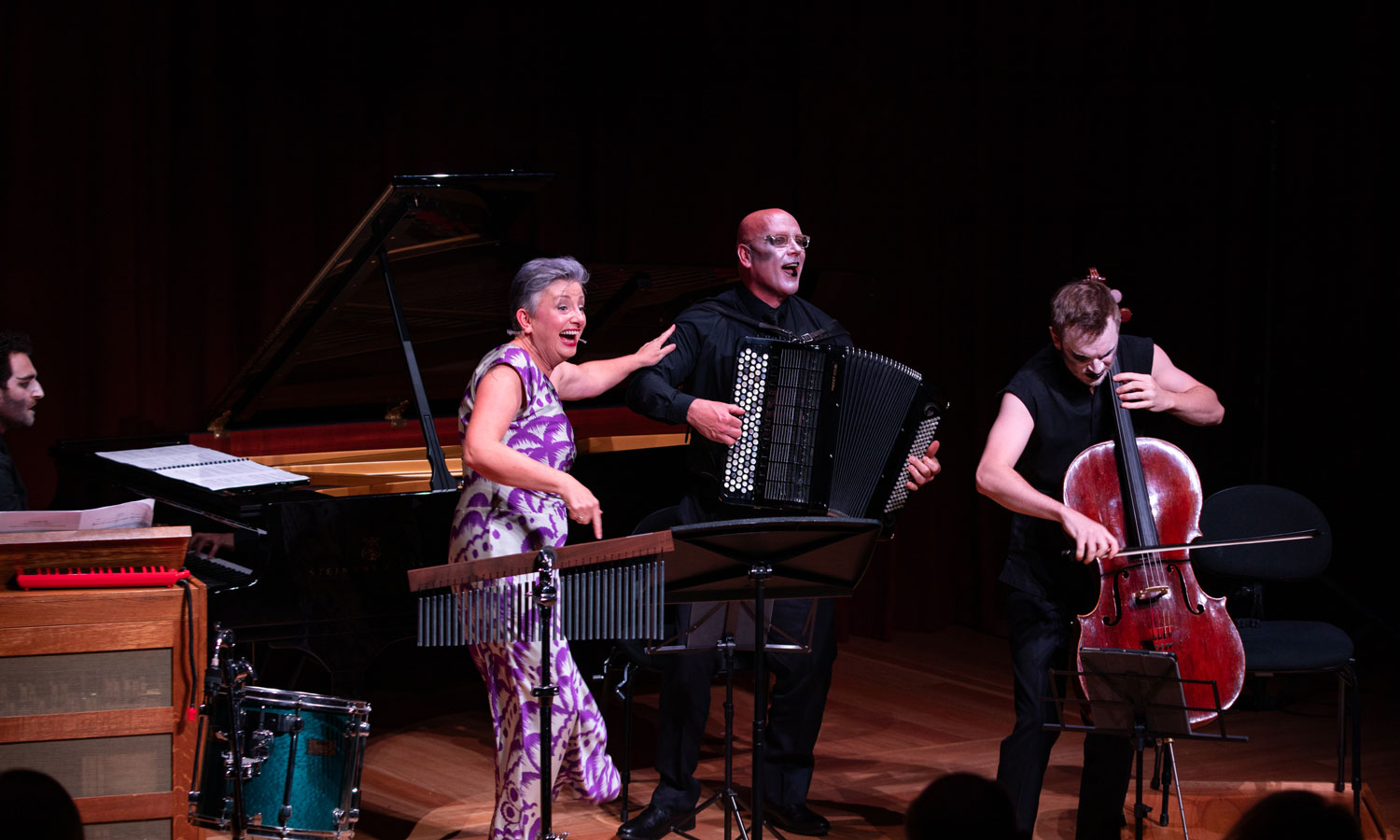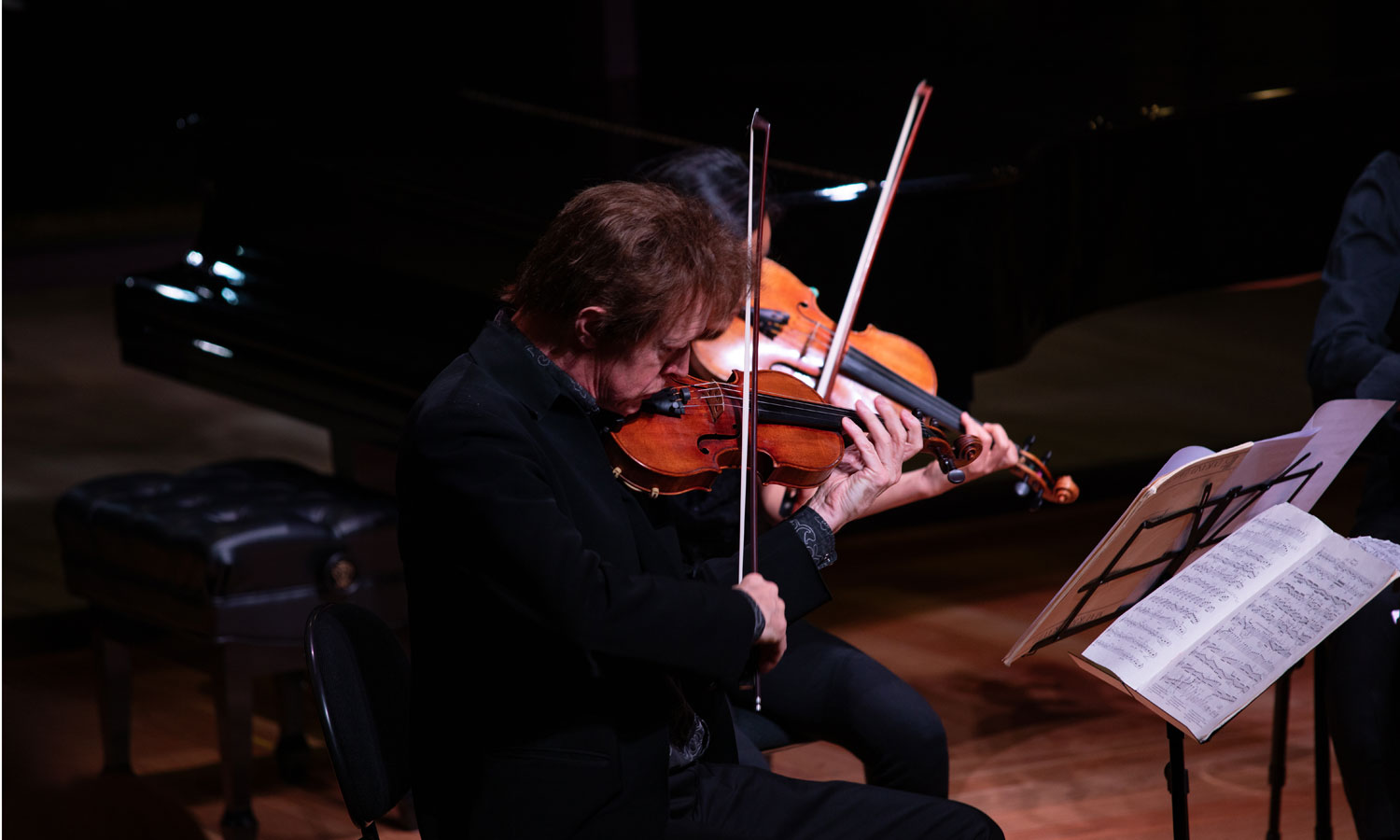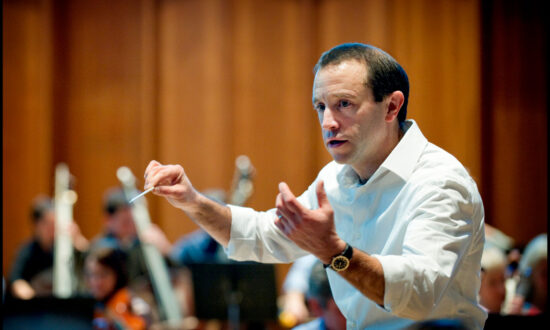Two young writers, Caitlin Tait and Charlotte Kowald, came on board to write this review of the first concert at UKARIA’s annual flagship event. Both are participants in an InReview-UKARIA music masterclass being taught by Graham Strahle. Caitlin writes about the concert’s first half, and Charlotte writes about the rest of the program.
******
This year’s UKARIA 24 opened with Schubert’s Four Impromptus, D. 899, played by the noted Serbian pianist Aleksandar Madžar.
From the first chord, it was clear Madžar was relishing the magic of UKARIA’s unique space and acoustics. And playing all the Impromptus off-book paid off, as he sailed through the music with ease, letting himself seemingly do what Schubert asks of the musician: play ex tempore, as if prompted by the spirit of the moment.
With the sun beginning to set on the quintessentially Australian landscape behind the venue’s large picture windows, it was the perfect way to start to this concert, although Schubert’s place in the program didn’t seem to bear a connection with later pieces and composers.
The curtains were drawn for the extraordinarily arresting performance that was to follow: Jörg Widmann’s Schwester Tod, Unterweltszene aus Babylon (Sister Death, Underworld Scene from Babylon). This semi-acted work takes the form of a dialogue between the ancient Mesopotamian goddess Inanna, sung by a soprano, and Death, played and vocalised by a cellist.
Cellist Coleman Itzkoff, pianist Stefan Cassomenos, and accordionist James Crabb all had their faces painted with grey make-up, creating an underworld-esque look before the work even began.

A journey to the underworld at UKARIA 24. Photo: Dylan Henderson
Taking the main vocal role, soprano Judith Dodsworth performed brilliantly, exhibiting her full range of singing and acting abilities. Itzkoff was similarly outstanding, expressing the music naturally and with sincerity. The whole ensemble combined with ease and lightness, the audience immediately understanding the sense of this piece.
This weekend was Itzkoff’s Australian debut, and if the audience’s response was any guide, this highly versatile American cellist already has a solid fanbase here.
Widmann’s use of classical accordion, celeste and melodica in Schwester Tod adds particular interest, and these instrumental touches mingled perfectly in colour, timbre and this melodrama’s alluring strangeness.
It was a privilege to witness a piece of true theatre at UKARIA, executed with joy and by musicians at the top of their game.
The first half of Friday’s program was certainly well on the way to capturing Marwood’s stated intention of creating “unexpected juxtapositions, a conversation between old and new, the familiar and the unencountered”.

The second part of UKARIA 24’s opening night program brought a change of pace. Photo: Dylan Henderson
Returning after interval and with the curtains reopened, it felt as if the theatrical turmoil of Widmann’s journey to the underworld had never happened. As narrator Walter van Dyk preluded Felix Mendelssohn’s String Quartet No.6 by reading a letter penned by the composer in the wake of his sister Fanny’s death, it was clear that we were now taking a very different path.
This juxtaposition felt disorientating, but Mendelssohn’s grief over his sister was given the fullest language through this work. Violinists Anthony Marwood and Natsuko Yoshimoto, violist Imants Larsens and cellist Itzkoff created an intense and dynamic collective sound, as if they had been playing as a quartet for years rather than just a few days of rehearsals ahead of this event.
The concert closed with Bach’s aria “Erbarme dich, mein Gott”, from St Matthew Passion, here re-conceived for violin, classical accordion, cello, and soprano voice – a unique combination that vividly came to life with the contributions of Marwood, Crabb, Itzkoff and Dodsworth.
Given the unamplified nature of this part of the performance, and a somewhat top-heavy sonic mix, Dodsworth’s vocals did not cut through quite as clearly as one might have hoped. However, she possesses such a rich tone that this helped balance out and deepen the sound.

Get InReview in your inbox – free each Saturday. Local arts and culture – covered.
Thanks for signing up to the InReview newsletter.
Holding his instrument sideways like a guitar, Itzkoff’s plucked cello also helped to make this last performance rewarding both visually and sonically.
While the connection between the programmed pieces may not have been obvious, it felt like a true connective thread was being provided by the musicians themselves in their impressive versatility. It is impossible to put these musicians in a box and, as the audience, we would not even want to try.
InReview has partnered with UKARIA to run a music masterclass, with the aim of helping to develop the next generation of music reviewers. The inaugural participants, Caitlin Tait and Charlotte Kowald, are participating in classes with experienced music writer Graham Strahle to learn about the different elements of reviewing, and attended the first concert in the three-day UKARIA 24 program last Friday to gain practical experience in the craft.
Support local arts journalism
Your support will help us continue the important work of InReview in publishing free professional journalism that celebrates, interrogates and amplifies arts and culture in South Australia.
Donate Here




